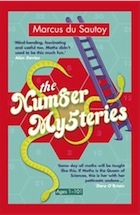
Divinity School, Bodleian Library–a room so beautiful it makes me hyperventilate!!
Anita Mathias: Dreaming Beneath the Spires
Anita Mathias's Blog on Faith and Art
The Temptations of a Very Long Journey: Giving Up
Every now and then on a very long journey, one comes to a viewpoint. And gasps. The road rolls before one, endless. It seems so much simpler to turn back. And it is. It is.
In every important enterprise of my life, I have reached this point. At various points of discouragement, in my twenties, thirties, and now in my forties, I have wondered if I should give up writing. When Jesus asked Peter if he too would leave him, Peter answered, “Lord, to whom should I go?” I feel like that with my writing. What would I do if I were not writing? I am as hard-wired to write as a bird to sing.
Last year, I decided I was going to gain proficiency in French. Why? Because I love languages in general, and French in particular. I have tried to learn French in the Alliance Francaise of Oxford. But there is a continual turn-over of teachers and pupils, and I keep being moved up one group before I have completed all the lessons in the previous stage. It’s never good to have shaky foundations. I have just been moved up again, and less fluent than the two others. Do I give up, or work on my own to catch up?
Is the prize, fluency in another language, worth it? Yes, it is. And so I will continue. (And it may prevent middle-aged deterioration of brain cells, not that I ever give my overworked brain cells time enough to rest or rust.)
And being a Christian? I have fleetingly thought of abandoning that. But then, I say with Simon Peter. “To whom should I go? You have the words of eternal life!!”
Here’s a somewhat long but interesting post from Christianity Today.
http://www.christianitytoday.com/ct/2001/february5/5.40.html
You will see why the Gospel is truly “good news for the poor.” When there is neither money for a doctor, nor easy access to one, hope in and for a miracle is all people have.
No wonder, someone whose faith can work miracles can pack ever larger tents. I find the simple faith of the African people, which has been described by Heidi Baker and others, very moving.
Okay, we finally broke down and bought a nice new super-sized American refrigerator. When our last one broke down, we replaced it from one from Freecycle, which remarkably lasted almost 4 years. But it was much too small, we couldn’t find things, and things were always getting lost, forgotten, crushed, rancid. And so, as people do when they buy things they probably could have done without, we praised ourselves to ourselves for how much money we were saving by buying a big new fridge.
And so we bought a nice new shiny massive American refrigerator. And oh-uh, it is populated by two boxes of kulfi icecream, which formerly Roy would have stopped me buying saying there was no room in (the inn of our bodies) or the fridge, and lots of fruit, veggies, types of hummus, jams, dressings, sauces, which we were restrained about acquiring because of our tiny old fridge.
When the fridge arrived, Irene stepped into it, and beamed. And I hope as the months go on, we will all be beaming, and it won’t encourage us to gain extra weight or spend extra money, both of which we can ill-afford.
Fridge. When I went to America as a graduate student in the 80ies, everyone laughed when I said Fridge. Why? I asked baffled. “Only blacks say fridge,” my fellow students explained. “We say refrigerator.”
Blacks and English people, it appears. No one in Oxford says refrigerator!
Another popular word here “reckon” was similarly laughed at in my American graduate school as a hilly-billy word. I had acquired a bit of an English accent in my three years at Oxford, so I suppose these infelicities were particularly amusing in that accent.
I lived in America for 17 years. I now have an accent with traces of all my three countries. A world class accent, I suppose!


The Museum of Oxford
Zoe is in Exmoor on a 3.5 day hike with her friends for the Duke of Edinburgh expedition. Serendipitiously, she is v. fond of all the three other girls with her, so they should have a great time, even though the bonds of friendship will, no doubt, be tested to the uttermost.
We and Irene had a great morning in the interesting Museum of the History of Oxford. There were artefacts from paleolithic and neolithic times and a good Roman collection. You know, I didn’t know the Romans were in Oxford. We enjoyed the kilns and pottery, with the potter’s signature.
The Romans introduced a lot of herbs to English cooking–parsley, chervil, coriander, garlic, onions, sage, rosemary–which have continued to be used ever since. They introduced their two favourite foods–sauces and sausages, which likewise have lingered.
Then came the Saxons. I didn’t realize before that the City of Oxford grew around Friedeswide’s Minster, the site on which Christ Church Cathedral now stands. So Christianity has always been at the heart of the City of Oxford!
I have lived in Oxford for 8.5 years, so you can imagine the pleasure with which I am taking my children to the Museum of the History of Oxford.
This week, we looked at the Danish invaders to Oxford, who burnt down the wooden city. After that, Oxonians built in stone. The main thoroughfares (High street, Cornmarket, Queen’s street, St. Aldate’s) were around, and commercial centres in the 10th century. And so many names one still hears are from the Danish invaders.
Medieval feasts were displays of wealth. They could take 6 months to prepare, and were eaten on pieces of bread as trenchers, with a knife, and one’s fingers!! Forks were not yet invented.
I love Oxford. There is no place I would rather live!
We watched a good 15 minutes film on the history of Oxford, then used the excuse that 11 year olds need to be fed regularly to take Irene to Nandos.
Absolutely delicious grilled piri-piri chicken, which I have never had before. I would give a good deal for the recipe, and for Roy to learn to cook it.


I love this painting, partly because I identify with it. It is the way I do housework, as my husband can testify with great exasperation.
It depicts a mystical moment, a respite in the middle of duties and domesticity.
Wordsworth thus described these mystic moments of illumination which come unbidden
“another gift,
Of aspect more sublime; that blessed mood,
In which the burthen of the mystery,
In which the heavy and the weary weight
Of all this unintelligible world
Is lighten’d–that serene and blessed mood,
In which the affections gently lead us on,
Until, the breath of this corporeal frame,
And even the motion of our human blood
Almost suspended, we are laid asleep
In body, and become a living soul:
While with an eye made quiet by the power
Of harmony, and the deep power of joy,
We see into the life of things.”
And these can happen even in the thick of domesticity!!
There is yet another poem which comes to mind when I think of Vermeer, one from Tagore’s Geetanjali.
I ask for a moment’s indulgence to sit by thy side. The works
that I have in hand I will finish afterwards.
Away from the sight of thy face my heart knows no rest nor respite,
and my work becomes an endless toil in a shoreless sea of toil.
Now it is time to sit quiet, face to face with thee, and to sing
dedication of life in this silent and overflowing leisure.
I recently took a Christian history class with Ken Barnes through Oxford University’s Continuing Ed. I enjoyed the lecture on Charles and John Wesley and the Holy Club. One of the things the “Holy Club,” (their derogatory nickname, a bit like today’s God Squad) did was to read the Bible together in the Koine Greek, Novum Testamentum Graece.
I took some classes in Classical Greek when I was at Oxford, and still retain enough to read Scripture in Koine Greek. I firmly believe it gives one much of the flavour and feel of the original which is lost in translation.
However, being patient and kind, not jealous or boastful, not arrogant or rude is no easier, whether you read the injunction in English, Greek, French or Hindi, and I have just read it in all my four loved languages!!


